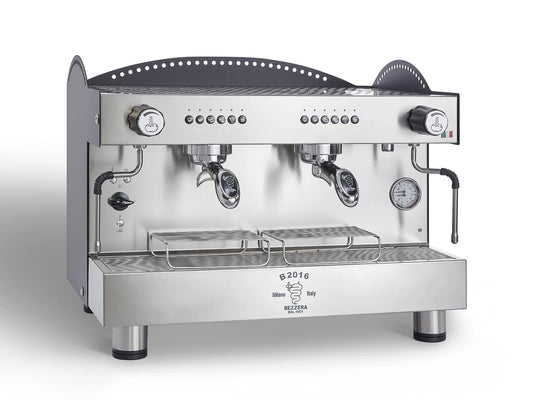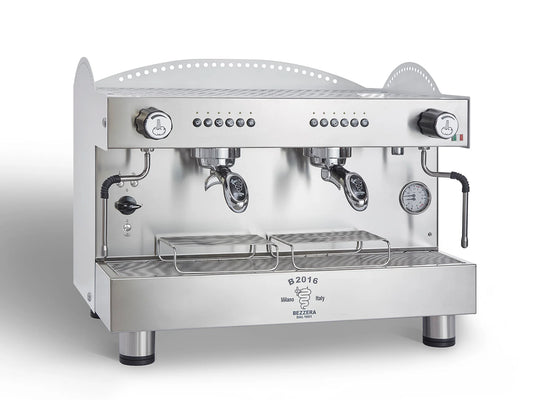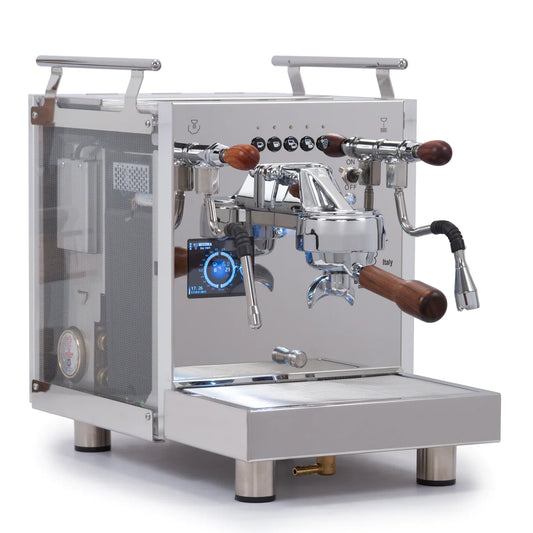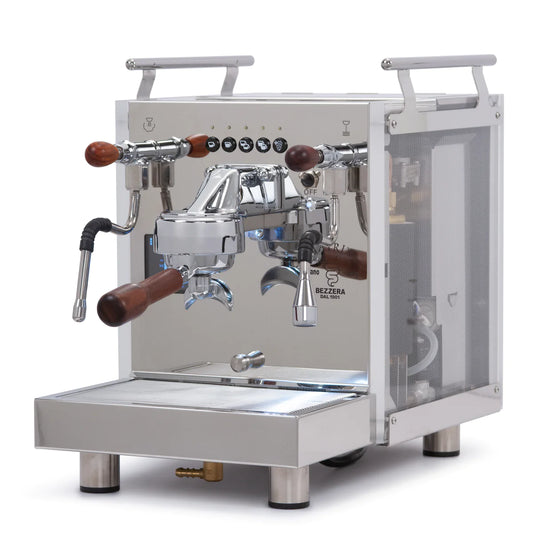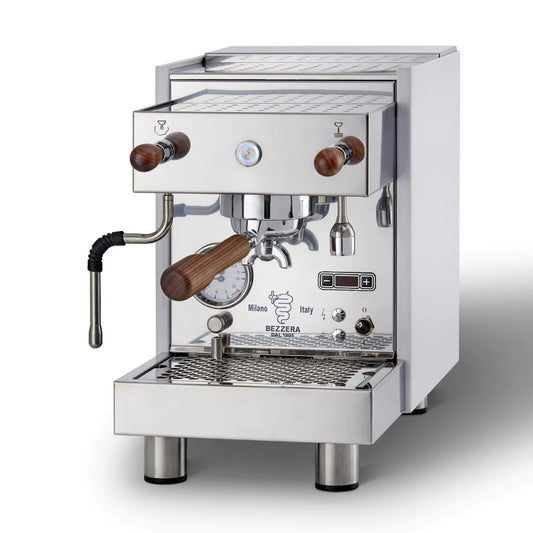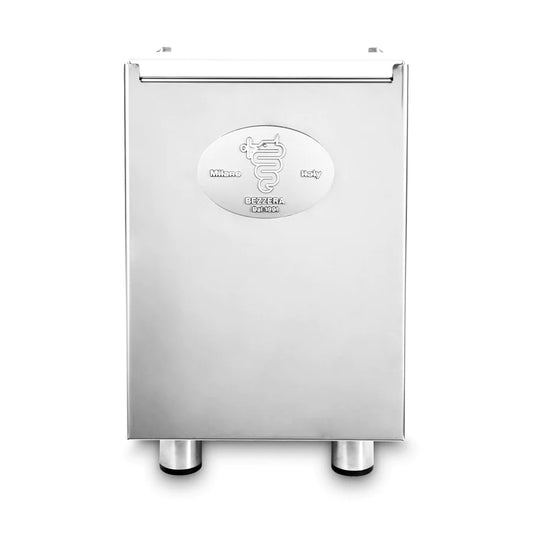Coffee Industry Update: Tariffs and Transformations Impacting Global Trade
Table of Contents
- Key Highlights:
- Introduction
- The Impact of US Tariffs on Brazilian Coffee Production
- Political Ramifications and Industry Movements
- A Surge in Specialty Coffee Demand
- Technological Innovations in Coffee Production
- The Expanding Global Geography of Coffee Trade
- Functional Coffee: A New Trend
- Activities and Events Shaping the Coffee Community
- Industry Movers: Noteworthy Business Developments
- Domestic Coffee Production: Navigating Challenges
Key Highlights:
- The ongoing US tariffs on Brazilian goods, particularly coffee, have led to a significant surge in prices, peaking at $3.29/lb amidst supply concerns.
- A push for an exemption from the tariffs for coffee has garnered almost 14,000 signatures, emphasizing the industry's dependency on its prime supplier, Brazil.
- Rising geopolitical tensions have prompted calls for boycotts of US brands in countries like India, posing a challenge for American coffee chains targeting this lucrative market.
Introduction
As one of the world’s most loved beverages, coffee serves as both a morning ritual and a booming industry. Recent developments, however, signal that the coffee trade is facing complex challenges. Tariffs imposed by the US on Brazilian goods, which account for a significant portion of the country’s coffee imports, are causing ripples in commodity prices and prompting political movements on both sides of the globe. This article explores these developments within the coffee sector, examining the ramifications for businesses, consumers, and producers alike.
The Impact of US Tariffs on Brazilian Coffee Production
The recent imposition of a 50% tariff on Brazilian imports has dramatically reshaped the coffee landscape. With Brazil supplying approximately 25% of all coffee consumed in the US, this decision is poised to have far-reaching consequences.
Price Surge and Supply Chain Disruptions
Reports indicate that following the tariff announcement, the Coffee C price surged to $3.29 per pound. Many US buyers are strategically delaying Brazilian imports as they hope for a reversal or exemption from the tariffs. Analysts predict that these delays could drive prices even higher, amplifying costs for consumers and impacting profit margins for businesses dependent on Brazilian coffee.
This situation is not merely an economic inconvenience; it poses a substantial risk to the livelihood of coffee farmers in Brazil and can destabilize supply chains. The Brazilian coffee sector is in a precarious position as political conversations fluctuate between potential exemptions and compliance with US trade policies.
Political Ramifications and Industry Movements
The situation in Brazil has incited responses beyond economic implications. Political tensions are rising both domestically and internationally, with global businesses caught in the crossfire.
Advocacy and Legislative Efforts
A notable grassroots effort from the specialty coffee industry, led by New York roaster Coffee Bros, has garnered nearly 14,000 signatures in a petition advocating for the exemption of coffee from the tariff. Further compounding matters, the Congressional Coffee Caucus has publicly urged the US government to consider the economic ramifications of these tariffs, not just for American consumers but also for Brazilian producers.
Prominent figures, including US Commerce Secretary Howard Lutnick, have hinted at potential tariff exemptions for coffee, yet no solid confirmation has materialized. The ambiguity exacerbates anxiety in the market, with business owners and farmers alike uncertain of their futures amid rising costs.
The Ripple Effect: A Global Perspective
India, another emerging coffee market, is also feeling the heat of US tariffs. Prime Minister Narendra Modi's supporters have initiated calls for boycotting US-backed brands, impacting not just American companies but also Indian coffee producers. The tension in the aromatic coffee landscape extends beyond commerce; it's a reflection of growing nationalist sentiments and advocacy for supporting local businesses.
A Surge in Specialty Coffee Demand
Despite the challenges posed by tariffs and international politics, the specialty coffee sector is experiencing noteworthy growth. The price points are not hindering consumers' willingness to pay for quality, particularly among younger demographics that place a premium on sustainably sourced and ethically produced coffee.
The Market Dynamics of Specialty Coffee
Within this context, specialty coffee markets are expanding. Sales of ready-to-drink coffee formats are on the rise, contributing to a $4.48 billion market. Strategies such as launching new products that cater to health trends, such as coffee infused with functional ingredients like adaptogens and probiotics, are gaining traction, especially in North America, which leads the market.
Companies like MTPak Coffee have begun to distinguish themselves as leaders by sponsoring competitions like the Global Coffee Awards, aiming to elevate the profile of high-quality roasters and producers.
Technological Innovations in Coffee Production
Technological advancements are transforming coffee production. With farmers increasingly adopting innovative practices to tackle challenges from climate change, there’s a growing trend towards integrating artificial intelligence and robotics into farming techniques.
The Role of Technology in Enhancing Quality
The integration of these technologies allows for precision farming, optimizing labor, and reducing operational costs. Brazilian coffee producers are benefiting from recent advancements that have resulted in increased yield without compromising quality. For instance, using AI sensors in crop monitoring can significantly enhance productivity and manage resources more efficiently, paving the way for sustainable coffee farming.
The Expanding Global Geography of Coffee Trade
As the dynamics of coffee trade shift, new markets are opening while traditional ones face obstacles. Recent agreements in international trade mechanisms aim to protect geographical indications for Brazilian coffee in European markets, amplifying Brazilian brands' recognition and helping them access new wholesaling opportunities.
Geographical Indications and Market Expansion
By protecting brands within Europe, Brazilian coffee exporters can potentially command higher premiums for their products in regions traditionally viewed as independent coffee hubs. This enhancement of market positioning is vital as exporters strive to cushion the impacts of tariff-related pricing volatility.
Functional Coffee: A New Trend
As consumers become increasingly health-oriented, the functional coffee market is burgeoning. This category refers to coffee beverages infused with beneficial compounds to enhance well-being, focusing on areas such as energy, cognition, and nutrition.
Growth in Functional Coffee Products
Products such as caffeinated chocolate are now appearing in major retail channels, indicating a shift in consumer preferences toward novel, healthy alternatives to traditional coffee. The rise of functional beverages is expected to stimulate sales further, creating new avenues for differentiation among competitive brands.
Activities and Events Shaping the Coffee Community
The coffee community remains robust, with numerous events and competitions emphasizing barista skills and product development. These gatherings serve as vital networking opportunities for producers, baristas, roasters, and enthusiasts, fostering collaboration and innovation.
Upcoming Coffee Events and Their Importance
Major events such as the Melbourne International Coffee Expo and The Barista League’s North American competition showcase emerging talent while also deepening ties within the coffee community. These gatherings stress the importance of authenticity and craftsmanship in coffee, reinforcing consumer education regarding the complexities of coffee production and sourcing.
Industry Movers: Noteworthy Business Developments
Economic indicators are closely tied to consumer trends, and companies within the coffee sector are continuously adapting. Various mergers, acquisitions, and fundraising efforts underscore the dynamic evolution of the industry, signaling a resilience rooted in innovation and adaptation.
Companies Making Waves in the Coffee Scene
Acquisitions, such as Thermoplan's recent purchase of Swiss roaster Mikafi, illustrate major players' strategic movements toward integrating roasting to enhance customer offerings. Additionally, a Singapore-based startup, Prefer, focusing on beanless coffee innovation, has secured significant investment to expand its operations and reach new markets.
Domestic Coffee Production: Navigating Challenges
While international coffee trade faces significant obstacles, domestic coffee production in the US remains a niche yet growing market. The demand for locally sourced coffee has spurred interest in domestic cultivation, albeit facing hurdles such as climate conditions and limited supply.
The Growth of U.S. Coffee Farming
Coffee variety cultivars like Kona coffee from Hawaii are receiving renewed attention, commanding higher prices due to a preference for local, sustainable, and ethically sourced coffee. This push can align with consumers' growing expectations for transparency regarding sourcing and production methods.
FAQ
What is the current price fluctuation of coffee?
Recent trends indicate a peak price of $3.29/lb for Coffee C as a reaction to tariffs on Brazilian imports, raising concerns over the sustainability of these prices amid supply chain disruptions.
How are tariffs affecting coffee growers in Brazil?
Tariffs are increasing operational costs for Brazilian coffee growers and complicating international trade relationships, leading to advocacy for exemption to protect both producers and the U.S. coffee market.
What are some emerging trends in the coffee industry?
The coffee industry is witnessing a surge in functional coffee products, a heightened interest in sustainable sourcing, and the integration of technology into farming strategies.
How does the geopolitical landscape influence coffee consumption?
Geopolitical factors, such as tariffs and calls for boycotts, can significantly affect consumer access to brands, consumer preferences, and overall market stability across regions.
What is the importance of specialty coffee?
Specialty coffee emphasizes quality, sustainability, and the unique characteristics of coffee sourced from specific locations, appealing to consumers looking to pay a premium for enhanced experiences.
What events are upcoming in the coffee industry?
Major events like the Melbourne International Coffee Expo and competitions hosted by The Barista League are expected to showcase emerging talent, strengthen community ties, and promote innovative practices in the coffee sector.
As the coffee industry grapples with these multifaceted challenges, it faces an equally formidable opportunity for growth through innovation, community engagement, and a commitment to sustainability and quality. Whether through technological advancement, market adaptation, or legislative advocacy, the response from the industry will undoubtedly shape its future for years to come.

